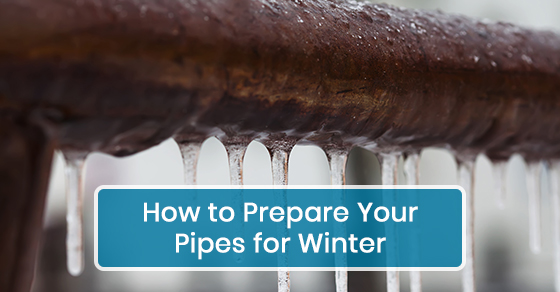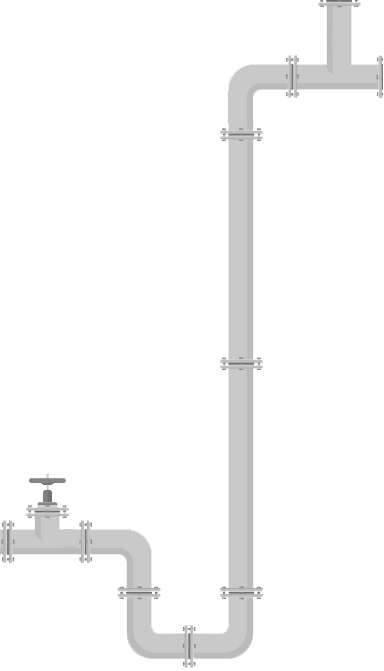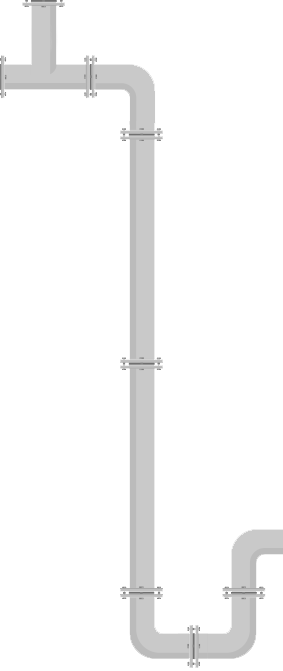How to Prepare Your Pipes for Winter
Posted by Jason Genah on 07-09-2020

It’s common knowledge that water freezes at zero degrees Celsius. It should also be obvious that any water in your pipes exposed to the sub-zero winter temperatures will freeze and expand, damaging them. This will leave you without any running water in your taps and put your home at risk of flooding when pressure in the frozen pipe causes it to crack, and you can’t shut off the water immediately. This can be an inconvenient and expensive problem to fix when you have to contact emergency plumbing services.
You should pay special attention to any exposed water pipes inside and outside your home, including those running through under-insulated crawl spaces and attics or unprotected outdoor areas. Fortunately, most winter plumbing issues can be successfully prevented by scheduling maintenance services before the start of the season.
What kind of pipes can freeze?
Generally, only the water supply lines are prone to freezing, not the drain pipes. This is because water supply pipes usually have smaller diameters of about 1 inch or smaller, and carry water under high pressure. On the other hand, drain pipes typically measure 1.5 inches or more and are made of plastic. Drain pipes usually carry wastewater from your home through gravity. They don’t retain any water that can be frozen during winter; plus, they’re not pressurized, further reducing the risk of bursting even if some ice forms inside the drains.
Any unprotected water pipes are at risk of freezing and bursting when exposed to outside temperatures below 20 degrees Fahrenheit (-6.7 degrees Celsius). Some of the most vulnerable pipes in your home include:
- Water pipes in basements, attics, crawl spaces, and garages
- Water pipes running against exterior walls with little or no insulation
- Water sprinkler lines
- Outdoor hose bibs
- Swimming pool supply lines
Preparing Your Pipes in Warm Weather
As winter approaches, you should inspect the areas around your home where water supply pipes are located, especially in insulated areas. Inspect pipes in the basement, garage, attic, crawl space, and under the bathroom and kitchen cabinets. Keep in mind that hot water supply lines can also freeze if the water is not running through, and the water temperature falls below the freezing point.
Note down any problems that you identify with your plumbing system, schedule maintenance services immediately to fix those issues, and check for others that may pose a problem during winter.
For any exposed water pipes, licensed plumbers may recommend:
1. Adding extra insulation
Any pipes passing through areas that are not well insulated, such as attics and basements, may require additional insulation to prevent freezing. The plumbers will check the supply line inside and outside your home and install extra insulation where necessary. Exposed pipes can be fitted with fibreglass or foam rubber sleeves. Underinsulated pipes passing through walls, ceilings, and floors can be protected by adding insulation to the relevant section of the wall, ceiling, or floor.
2. Applying heating tape
Although proper insulation can help prevent the pipes from losing any heat, so they maintain the water’s temperature, it cannot heat the pipe or prevent it from freezing if exposed to extremely cold temperatures. As such, professional plumbers may recommend applying heating tape to short sections of your pipe with the highest risk of freezing and are easily accessible for monitoring.
Heating tape works by providing heat through contact, like an electric blanket for your pipes. You can choose between two types: automatic heating tape that uses temperature sensors to turn on and off by itself; and manual heating tape that needs to be manually plugged to deliver heat or unplugged to stop heating the pipe (since it doesn’t have a switch). These products can be dangerous if poorly installed and handled, so make sure to follow your plumber’s directions for safety.
Maintaining Optimal Condition of Your Water Pipes During Winter
Ideally, once the cold weather arrives, you will have winterized your water pipes with the help of a professional plumber. In addition, there are a few things you can do to avoid any accidents:
- Set the thermostat at a consistent temperature 24/7, even when leaving your home. The ideal setting is above 55 degrees Fahrenheit.
- Keeping the bathroom and kitchen cabinet doors open so warm air can circulate the plumbing.
- Keeping the garage door closed if water pipes are passing through the walls.
- Allow the tap to drip slightly to relieve pressure in the water supply line.
Dealing with Frozen Pipes After the Storm
If you suspect that your water supply line is frozen or leaking, you should immediately turn off the water supply to your house at the main water valve located outside until the problem has been inspected and repaired. You mustn’t attempt to thaw the pipes yourself using open flame devices such as a propane heater or blowtorch because they emit harmful carbon monoxide gas and present a fire hazard.
Instead, contact a licensed plumber to assist you in:
- Locating the frozen area(s)
- Inspecting pipes in areas that are difficult to reach
- Thawing frozen pipes
- Inspecting all the taps in your home to check if there are other frozen pipes
- Fixing any leaks
While you can thaw frozen pipes using a heating pad, portable space heater, or electric dryer, you should also be prepared to fix any leaks to avoid the risk of flooding in your home once the water starts to flow again. You can prevent such risks by hiring a professional plumber to fix the problem.
Get Plumbing Maintenance Services in Toronto Today
You can prevent the hassle, property damage, and costly repairs from frozen and leaking water pipes in winter by hiring a licensed plumbing contractor to undertake a comprehensive assessment of your home’s indoor and outdoor plumbing system before the start of the season. While you can inspect the plumbing system yourself and perform minor repairs, professional plumbers have the skills, knowledge, and experience to identify vulnerable areas in your home’s plumbing system, trace the root cause of seemingly minor plumbing issues, make long-lasting repairs to damaged sections, and take precautionary measures to prevent any problems from arising.
Contact us today for a thorough and professional assessment of your home’s plumbing system.




